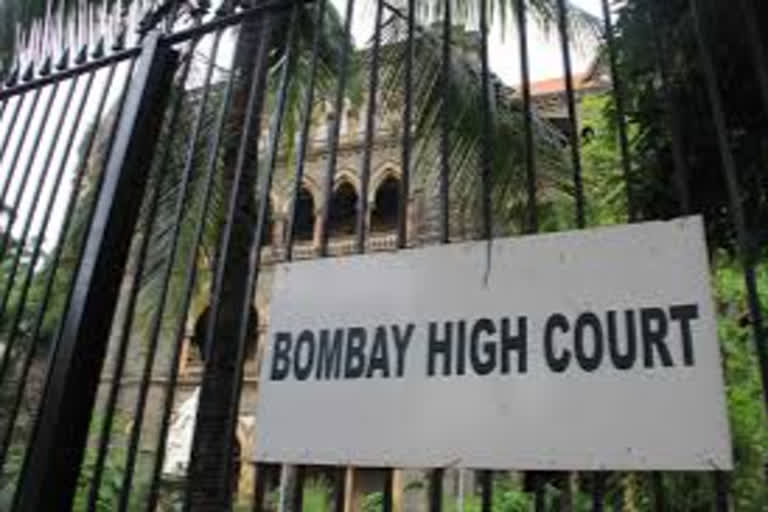Mumbai: The Bombay High Court commuted death sentence of sisters Renuka Shinde and Seema Gavit to life imprisonment, in a case of abduction and murder of several children between the years 1990 and 1996. A Bench of Justices Nitin Jamdar and Sarang Kotwal decided to commute the death penalty due to the delay by authorities in deciding their mercy pleas.
The Court observed in its order that 'Though the procedure for deciding the mercy petitions mandates speed and expediency, the state machinery showed indifference and laxity at each stage of processing the files. That it took seven years only for the movement of files for such a grave issue is unacceptable when electronic communications were available to be used.' The Bench categorically stated that the imprisonment of the accused was for life unless a competent authority remits the remainder.
The nature of the injuries suffered by some of the children was so severe that only an extreme depraved mind could have perpetuated such brutal killings, the bench stated. It further relied on the orders of the co-ordinate bench dismissing their appeals against conviction. The Bench, however, did not make any observations on the issue of remission leaving it to the competent authority to decide the adverse observations of this court and the Supreme Court that the petitioners are beyond being reformed, taking into consideration the gravity of the offences.
Also Read: Kerala fast track court sends 54-year-old to rigorous imprisonment for abusing minor
Case Background
The sisters were booked for kidnapping children and using them to commit robberies, before eventually murdering them. Their mother Anjanabai, who was also one of the accused, had passed away during the pendency of the case. The two sisters were convicted in 2001 by the Sessions Court at Kolhapur for kidnapping 13 children and murdering six of them. They were sentenced to death by the Sessions Court which was confirmed by the High Court in 2004 and thereafter by the Supreme Court in 2006.
The convicts approached the Governor in 2008 with a mercy petition which came to be rejected in 2012-13. After this, the convicts filed another mercy plea before the President which was also rejected in 2014. The petitioners had submitted before the High Court that the delay in deciding their mercy petitions was entirely attributable to the executive including the Governor of Maharashtra, State Government, Central Ministry of Home Affairs and President of India.
The plea filed under Article 226 through Advocate Aniket Vagal was moved in 2014, the same day as the petitioners were to be executed. The Maharashtra government made a statement that during the pendency of the petition, the death sentence will not be executed and accordingly the petition came up for hearing in 2021. The plea sought for commutation of death sentence to life imprisonment saw an inordinate delay of 7 years, 10 months and 15 days in rejecting their mercy plea which resulted in infringement of their fundamental rights.
The sisters had been in police custody for over 25 years till December 15, 2021, the plea contended. Advocate Sandesh Patil appearing for the Central government argued that the mercy petition had been sent across to the President as soon as it was received from the state government. He pointed out the president had decided the application within 10 months and there had been no delay on their part.
On the other hand, Chief Public Prosecutor Aruna Pai stated that if the Court is considering reducing the death sentence to life imprisonment, then it should specify life imprisonment till natural death considering there was no scope for reformation. The High Court observed in their order, that the delay in deciding the mercy plea was entirely attributable to the officers Centre and state governments but more particularly to the state government.
"In light of the law laid down by the Supreme Court that Article 21 of the Constitution of India extends to the stage of execution of the sentence, that prolonged delay in execution of sentence of death has a dehumanising effect and that circumstances beyond the petitioners’ control caused the delay in this case, the resultant situation mandates commutation of their death sentences," the order reads.
The court also opined that the state's argument supporting the execution of the petitioners overlooked the "dereliction of its officers that is the cause for commuting the death sentence to that of life imprisonment". Having held so, the Bench refused to release the petitioners forthwith on having completed 25 years of imprisonment.
"The crimes committed by the petitioners are heinous. The brutality shown by the petitioners in murdering innocent children is beyond words to condemn," the Bench opined. This observation was held by the High Court, while dismissing their appeal challenging the conviction, which was further upheld by the Supreme Court.
Also Read: When marriage totally dead divorce should not be withheld: Karnataka High Court


